
Marion Robert Morrison, professionally known as John Wayne and nicknamed The Duke or Duke Wayne, was an American actor who became a popular icon through his starring roles in films which were produced during Hollywood's Golden Age, especially in Western and war movies. His career flourished from the silent era of the 1920s through the American New Wave, as he appeared in a total of 179 film and television productions. He was among the top box-office draws for three decades, and appeared with many other important Hollywood stars of his era. In 1999, the American Film Institute selected Wayne as one of the greatest male stars of classic American cinema.

To Be or Not to Be is a 1942 American comedy film directed by Ernst Lubitsch, starring Carole Lombard and Jack Benny, and featuring Robert Stack, Felix Bressart, Lionel Atwill, Stanley Ridges and Sig Ruman. The plot concerns a troupe of actors in Nazi-occupied Warsaw who use their abilities at disguise and acting to fool the occupying troops. It was adapted by Lubitsch (uncredited) and Edwin Justus Mayer from the story by Melchior Lengyel. The film was released one month after actress Carole Lombard was killed in an airplane crash. In 1996, it was selected for preservation in the United States National Film Registry by the Library of Congress as being "culturally, historically, or aesthetically significant."

Charles Bronson was an American actor. He was known for his roles in action films and his "granite features and brawny physique". Bronson was born into extreme poverty in Ehrenfeld, Pennsylvania, a coal mining town in Pennsylvania's Allegheny Mountains. Bronson's father, a miner, died when Bronson was young. Bronson himself worked in the mines as well until joining the United States Army Air Forces in 1943 to fight in World War II. After his service, he joined a theatrical troupe and studied acting. During the 1950s, he played various supporting roles in motion pictures and television, including anthology drama TV series in which he would appear as the main character. Near the end of the decade, he had his first cinematic leading role in Machine-Gun Kelly (1958).
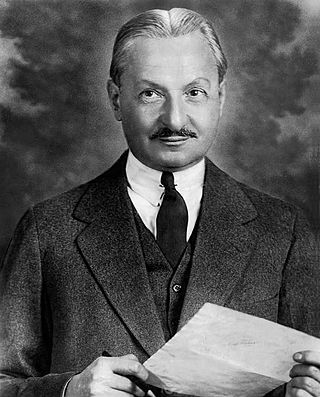
Florenz Edward Ziegfeld Jr. was an American Broadway impresario, notable for his series of theatrical revues, the Ziegfeld Follies (1907–1931), inspired by the Folies Bergère of Paris. He also produced the musical Show Boat. He was known as the "glorifier of the American girl". Ziegfeld is a member of the American Theater Hall of Fame.

Midnight is a 1939 American screwball comedy film directed by Mitchell Leisen and starring Claudette Colbert, Don Ameche, John Barrymore, Francis Lederer, Mary Astor, and Elaine Barrie. Written by Charles Brackett and Billy Wilder and based on a story by Edwin Justus Mayer and Franz Schulz, the film is about an unemployed American showgirl stranded in Paris who is set up by a millionaire to break up his wife's affair with another man. In 2013, the film was selected for preservation in the United States National Film Registry by the Library of Congress as being "culturally, historically, or aesthetically significant".

Louis Joseph Vance was an American novelist, screenwriter and film producer. He created the popular character Michael Lanyard, a criminal-turned-detective known as The Lone Wolf.

The Iron Horse is a 1924 American silent Western film directed by John Ford and produced by Fox Film. It was a major milestone in Ford's career, and his lifelong connection to the western film genre. It was Ford's first major film, in part because the hastily planned production went over budget, as Fox was making a hurried response to the success of another studio's western. In 2011, this film was deemed "culturally, historically, or aesthetically significant" by the United States Library of Congress and selected for preservation in the National Film Registry.
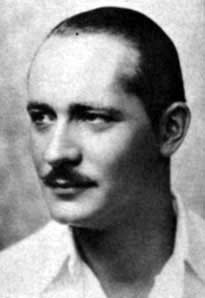
Norman Kerry was an American actor whose career in the motion picture industry spanned twenty-five years, beginning in 1916 and peaking during the silent era of the 1920s. Changing his name from the unmistakably German "Kaiser" at the onset of World War I, he rose quickly in his field, becoming "the Clark Gable of the [1920s]."
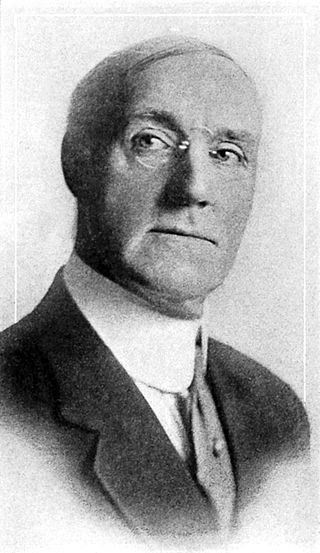
Thomas B. Ricketts was an English-born American stage and film actor and director who was a pioneer in the film industry. He portrayed Ebenezer Scrooge in the first American film adaptation of A Christmas Carol (1908), and directed one of the first motion pictures ever made in Hollywood. After directing scores of silent films, including the first film to be released by Universal Pictures, Ricketts became a prominent character actor.
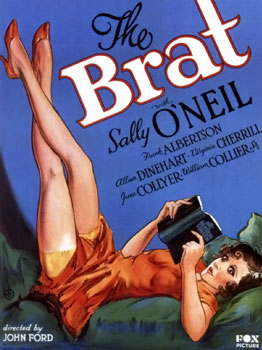
The Brat is a 1931 American Pre-Code comedy film directed by John Ford, starring Sally O'Neil, and featuring Virginia Cherrill. The film is based on the 1917 play by Maude Fulton. A previous silent film had been made in 1919 with Alla Nazimova. This 1931 screen version has been updated to then contemporary standards i.e. clothing, speech, topics in the news.

Mary Anderson was an American actress, who performed in over 77 silent films between 1914 and 1923.
The Masquerader is a novel by the Irish writer Katherine Cecil Thurston which was first published in 1904. It was the third most popular book in the United States that year. A leading British politician chooses to swap places with his cousin, a journalist who is his doppelganger. This leads to a dilemma for his wife who falls in love with the double.

The Masquerader is a 1933 American pre-Code drama film directed by Richard Wallace and starring Ronald Colman, Elissa Landi and Juliette Compton.

A Tailor Made Man is a 1931 American MGM pre-Code comedy film directed by Sam Wood. Adapted from the 1908 Hungarian play A Szerencse Fia by Gábor Drégely, the film stars William Haines and Dorothy Jordan.

Happiness Ahead is a 1934 American comedy film directed by Mervyn LeRoy and starring Dick Powell with Josephine Hutchinson. This was Hutchinson's (credited) debut.

The Masqueraders is a 1915 American drama silent film directed by James Kirkwood, Sr. The film stars Hazel Dawn, Elliott Dexter, Frank Losee, Norman Tharp, Ida Darling and Evelyn Farris. It is an adaptation of the 1894 play by English dramatist Henry Arthur Jones. The film was released on October 28, 1915, by Paramount Pictures.

In the Name of Love is a 1925 American silent comedy film directed by Howard Higgin and written by Sada Cowan. It is based on the play The Lady of Lyons by Edward Bulwer-Lytton. It stars Ricardo Cortez, Greta Nissen, Wallace Beery, Raymond Hatton, Lillian Leighton, Edythe Chapman, and Richard Arlen. It was released on August 10, 1925 by Paramount Pictures.
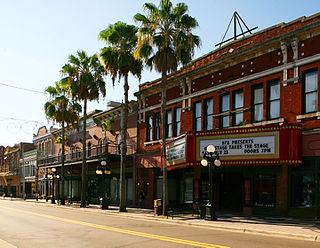
The Ritz Ybor is an events venue located in the historic Ybor City, within Tampa, Florida. Opening in 1917, the theatre catered to the Afro-Cuban community in the emerging neighborhood. Throughout the years, the venue was served as a cinema, adult movie theater, nightclub and concert venue. The theatre was transformed into its current incarnation in 2008; becoming one of Tampa's premier live music and events venue.

Marcia Manon was a film actress active during the silent film era of the 1910s and 1920s. She was a supporting player who worked with stars Mary Pickford, John Barrymore, Ethel Clayton, William S. Hart, and Wallace Reid. She retired from movies with the coming of sound film.

Women's suffrage, the legal right of women to vote, has been depicted in film in a variety of ways since the invention of narrative film in the late nineteenth century. Some early films satirized and mocked suffragists and Suffragettes as "unwomanly" "man-haters," or sensationalized documentary footage. Suffragists countered these depictions by releasing narrative films and newsreels that argued for their cause. After women won the vote in countries with a national cinema, women's suffrage became a historical event depicted in both fiction and nonfiction films.


















